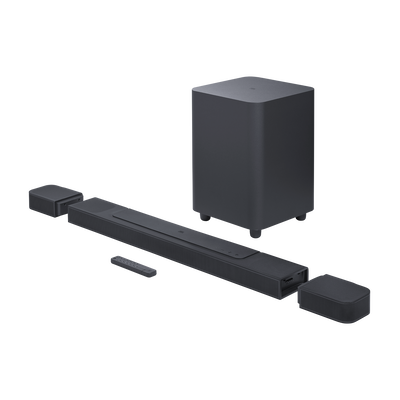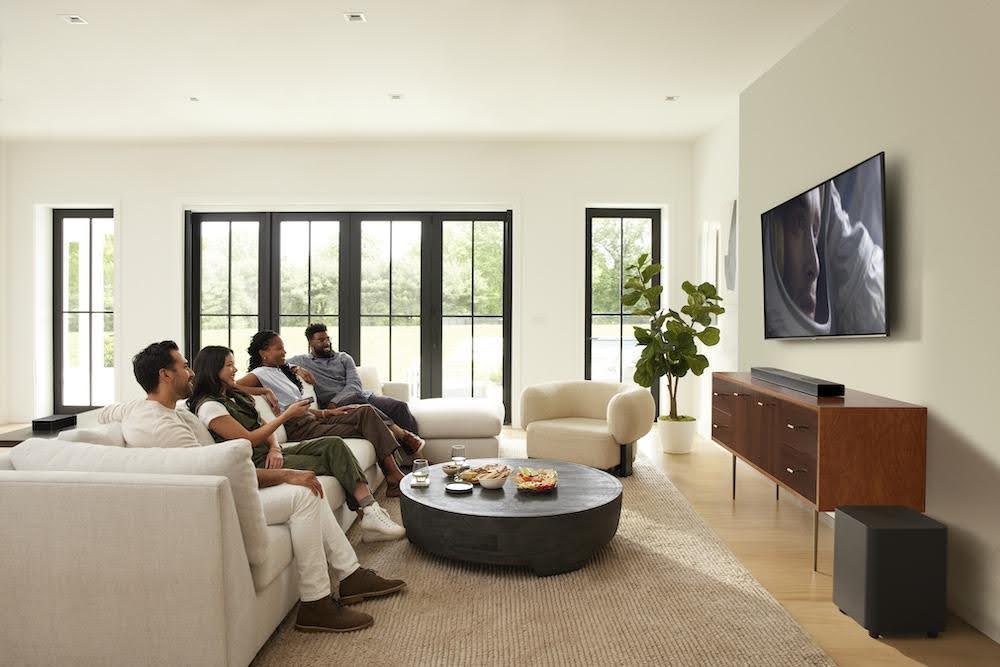
JBL Blogs
LifestyleSoundbar vs Speaker: Which One’s Right for You?
When choosing between a soundbar and speakers, the decision comes down to what matters most: convenience or customisation, simplicity or sound precision. If you crave easy setup, sleek design, and solid all-around performance, a soundbar is your best bet. But if you’re after high-fidelity audio and cinematic immersion, a traditional speaker system offers more flexibility — and more wow.
This guide breaks down the key differences to help you make the right call for your space, budget, and lifestyle.
What Is a Soundbar?
A soundbar is a compact, all-in-one speaker system designed to dramatically boost your TV’s sound. Most soundbars pack multiple speaker drivers (and often a built-in subwoofer or one you can pair), arranged in a long, horizontal enclosure that sits below or mounts near your TV.
TL;DR – Why people love soundbars:
- Slim, space-saving design
- Easy plug-and-play setup
- Massive upgrade from built-in TV speakers
- Great for small to medium-sized rooms
- Loaded with extras like Bluetooth, Dolby Atmos, and voice control
If you want better sound without the speaker maze or wire jungle, a soundbar is the MVP.
What Is a Speaker System?
We’re talking traditional speakers here — bookshelf speakers, floorstanding speakers, surround speakers, subwoofers, and the amplifiers that tie them together. This setup can be stereo (two speakers), 2.1 (speakers + sub), or full-blown 5.1+ home theatre.
TL;DR – Why audiophiles obsess over speakers:
- Superior sound separation and detail
- Customisable and expandable
- Ideal for larger rooms or dedicated home theatres
- Better for serious music listening
- Can create a true surround sound experience
Speakers are the go-to if you’re building your dream audio setup and want full control over every note.
Soundbar vs Speaker: The 8 Key Differences That Matter
1. Sound Quality
- Soundbar: Delivers clear dialogue, spatial audio, and big sound for its size. Many offer Dolby Atmos for a 3D-like experience using upward- and side-firing drivers.
- Speakers: Offer better audio fidelity overall — more depth, better stereo imaging, and a wider soundstage. Perfect for music lovers and film buffs who want full immersion.
Verdict: Soundbars are great for casual users, but speakers win for purists.
2. Setup & Simplicity
- Soundbar: Plug it in, connect via HDMI or Bluetooth, and you’re good to go in minutes.
- Speakers: Require more thought — placement matters, you’ll need an AV receiver, and cables need managing.
Verdict: Soundbars are the easy win here, especially for renters or tech-light users.
3. Smart Features
- Soundbar: Many include built-in voice assistants, app control, wireless streaming, and multi-room compatibility.
- Speakers: Fewer smart features unless you go for active speaker models or pair with a smart amplifier.
Verdict: Soundbars are more future-ready out of the box.
4. Compatibility & connectivity
- Soundbar: Easily connects to TVs via HDMI ARC/eARC, optical, or Bluetooth. Many support wireless streaming from phones, laptops, and tablets.
- Speakers: Require AV receivers for source switching (TV, gaming console, vinyl, etc.). Swapping input devices is easier, but often less seamless.
Verdict: Soundbars win for simplicity. Speakers offer broader input options with more manual control.
5. Design & Aesthetics
- Soundbar: Minimalist and sleek. Fits cleanly under your TV or wall-mounted.
- Speakers: Can be beautiful and bold, but also bulky — and may dominate your space if not planned right.
Verdict: Soundbars win on space and subtlety.
6. Cost
- Soundbar: More budget-friendly upfront. Entry-level models start around $200-$400, with mid-range options at $500-$800, and premium Dolby Atmos bars like the JBL Bar 1000 at around $1,000-$2,000.
- Speakers: A quality stereo setup starts at $700-$1,200 (including receiver) vs full home theatre systems, which can run from $2,000-$5,000+ depending on components.
Verdict: Soundbars are more cost-effective up front. Speakers offer better ROI for audiophiles, but require a higher initial investment.
7. Expandability
- Soundbar: Most work great solo, but many (like JBL's soundbars) support optional subwoofers and rear speakers for a bigger setup.
- Speakers: Infinitely scalable. Start small and grow to a full 7.1.4 surround setup if you want.
Verdict: Speakers win for long-term flexibility. Soundbars are more for "set it and forget it".
8. Room Size & Layout
- Soundbar: Perfect for bedrooms, condos, and open-plan apartments.
- Speakers: Shine in bigger, enclosed spaces where you can position everything optimally.
Verdict: Match your setup to your space — no need to over-engineer a small room.

When to Choose a Speaker System
You should choose traditional speakers if:
- You’re building a home theatre or media room
- You want ultra-precise sound for music or film
- You’re willing to invest time, space, and money
- You already own an AV receiver or don’t mind wiring things up
- You want the freedom to customise, upgrade, and fine-tune your setup
A speaker system is for the enthusiast — someone who notices every instrument, every explosion, every whisper in a scene.
But Wait — Why Not Both?
Here’s the secret: many setups today blend both worlds. A soundbar can act as your centrepiece, and you can amp it up with satellite speakers and a subwoofer to grow your system over time.
For example, JBL offers modular options like the JBL Bar 1000, which supports detachable wireless speakers and Dolby Atmos — combining plug-and-play convenience with room-filling surround sound.
This hybrid approach means you’re never locked in. Start simple. Upgrade when you're ready.
Final Thoughts: Which One Should You Get?
- Choose a soundbar if you want simple setup, clean design, smart features, and better-than-TV sound — fast.
- Choose a speaker system if you want customisable, high-fidelity audio and don’t mind the complexity or cost.
And if you want it all? Look for a modular soundbar system — like JBL’s — that lets you upgrade over time without committing to a full buildout on day one.
Because great sound isn’t about one-size-fits-all. It’s about what fits your life. Shop the full range at JBL Australia today!

Frequently Asked Questions About Soundbars vs Speakers
Are soundbars better than speakers for music?
For casual listening, yes — soundbars dominate for sheer convenience, self-contained power, and a sound profile crafted to rock in any space. You don’t need extra gear or a perfectly placed setup to enjoy music on a soundbar — just hit play on Spotify, and you’re instantly in the groove.
But when it comes to Hi-Fi or lossless audio, traditional speakers reign supreme. They unleash better channel separation, dynamic range, and driver quality, reproducing every fine audio detail with more accuracy.
So why do some people prefer soundbars for music?
- Ease of Use: No amps, no wires, no setup — just stream via Bluetooth or Wi-Fi.
- Tuned for Streaming: Many soundbars are optimised for compressed music formats, so they boost vocal clarity and bass for a pleasing effect.
- Room Calibration: Some high-end soundbars automatically adjust to your room, making music sound good even in less-than-perfect spaces.
In short, if you're looking for background vibes during dinner or a quick jam session while cleaning — a soundbar is ideal. If you want to sit down, close your eyes, and hear every guitar pluck and cymbal shimmer — go with speakers.
Can a soundbar replace surround sound?
Not entirely, but prepare to be amazed at how close it gets — especially with a Dolby Atmos-enabled soundbar.
Premium soundbars (like the JBL Bar 1300) unleash virtual surround sound, bouncing audio off your ceiling and walls with upward- and side-firing drivers to create the stunning illusion of sound all around you.
This magic shines in smaller rooms with the right layout and acoustics. But:
- It doesn’t deliver the same rear-channel separation as true surround speakers behind you.
- Sound reflections depend on your room’s shape and surfaces.
- You won’t get the same low-frequency impact vs a standalone subwoofer unless your soundbar is paired with one.
So while soundbars are a fantastic upgrade from TV speakers — and immersive in their own right — nothing beats a full 5.1 or 7.1 system for the most authentic, no-compromise surround experience.
What does a soundbar actually do?
A soundbar transforms your TV’s audio by crushing one universal problem: weak built-in speakers. Flat-screen TVs just can't deliver the power for quality drivers, leaving voices thin and action scenes flat.
A soundbar fixes this by:
- Amplifying dialogue, making it easier to hear what characters are saying
- Expanding the soundstage, so audio feels wider and more cinematic
- Boosting bass and clarity, especially with models that include a wireless subwoofer
- Simulating surround sound, often with Dolby Atmos or DTS:X
- Streaming music, podcasts, and more via Bluetooth or Wi-Fi
In one sleek device, you get phenomenal sound for everything — from blockbuster movies and Netflix binges to groovy playlists and intense gaming.
Bookshelf speakers vs soundbar — which is better?
Bookshelf speakers (paired with an amplifier) usually deliver superior stereo sound, better detail, and wider separation. They’re ideal for music listening, especially in treated rooms or setups where speaker placement is optimal.
Soundbars combine multiple drivers into one enclosure, offering good all-around sound with easier setup. Some even include subwoofers and wireless surround add-ons.
Here’s the bottom line:
- If you’re after top-tier audio fidelity and love tweaking your setup, bookshelf speakers win.
- If you want solid sound with minimal fuss, a soundbar is a better fit — especially in modern, space-conscious homes.
Can I use a soundbar with speakers?
Absolutely — some soundbars are made to integrate with additional speakers, giving you the flexibility to expand your setup.
For example, JBL’s modular soundbars allow you to:
- Add wireless subwoofers for earth-shaking bass
- Connect detachable rear surround speakers
- Use multi-room speaker setups via app control
Just note:
- Not all soundbars are compatible with third-party speakers or traditional speaker systems
- You can't just plug a passive speaker system directly into a soundbar unless they're engineered to sync up
If you demand the best of both worlds, hunt for hybrid soundbar systems that offer modular expandability — easy to start, and epic over time.
More from JBL
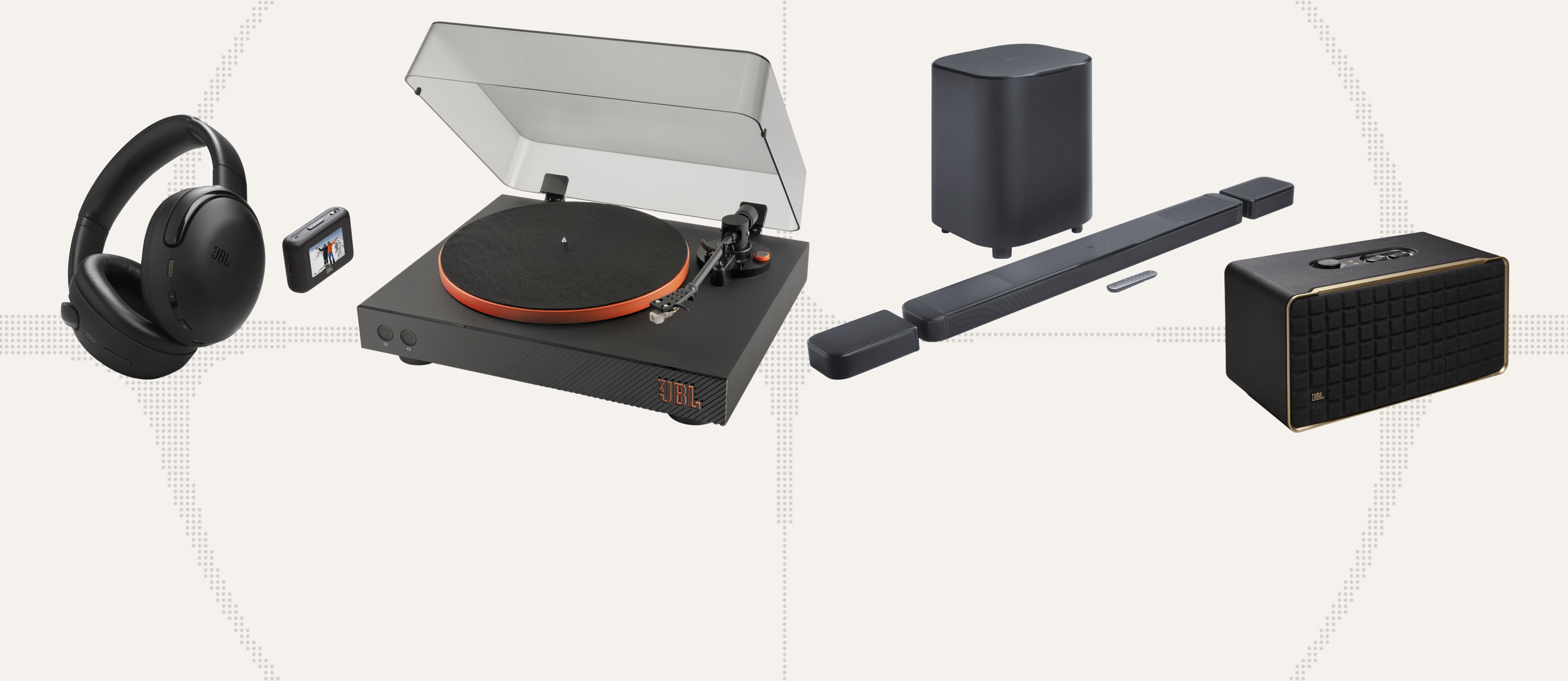 Lifestyle These are 2025’s best gifts for the music lover who knows everything
Lifestyle These are 2025’s best gifts for the music lover who knows everything
 Lifestyle JBL QuantumENGINE is the audio app every gamer needs
Lifestyle JBL QuantumENGINE is the audio app every gamer needs
 Lifestyle Try these tricks to help fix muffled headphones
Lifestyle Try these tricks to help fix muffled headphones
 Lifestyle JBL Grip or Flip 7: Which portable speaker brings the right vibes FOR YOU?
Lifestyle JBL Grip or Flip 7: Which portable speaker brings the right vibes FOR YOU?
 Lifestyle JBL Wired Headphones
Lifestyle JBL Wired Headphones
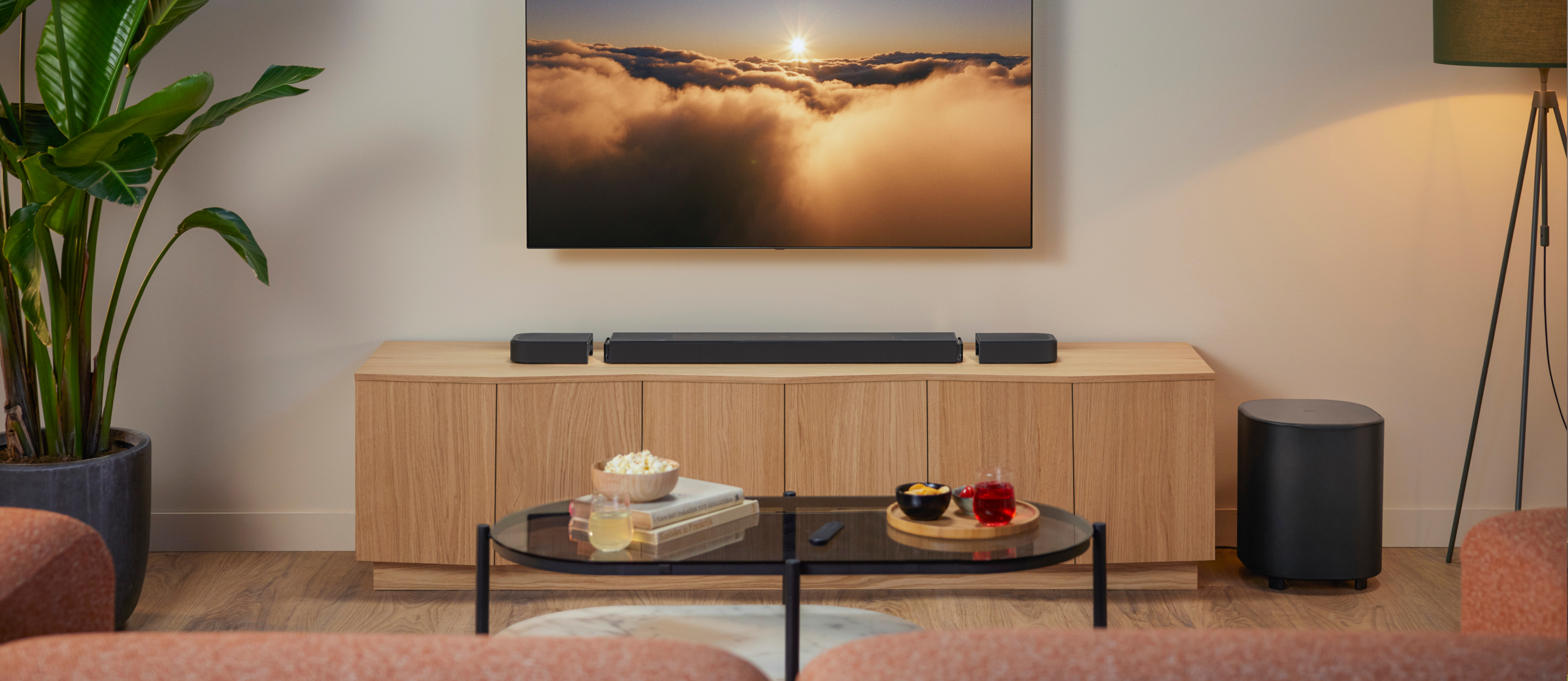 Lifestyle How Dolby Atmos can turn your home into an actual home theater
Lifestyle How Dolby Atmos can turn your home into an actual home theater
 Lifestyle JBL Christmas Gift Guide: Presents That Rock 'n' Roll
Lifestyle JBL Christmas Gift Guide: Presents That Rock 'n' Roll
 Lifestyle JBL Live 3 Series: The Best Earbuds for Everyday Use
Lifestyle JBL Live 3 Series: The Best Earbuds for Everyday Use
 Lifestyle JBL Boombox 3 vs 4: How These Portable Speakers Compare
Lifestyle JBL Boombox 3 vs 4: How These Portable Speakers Compare
 Lifestyle What is Spatial Audio? JBL’s Guide to Immersive 3D Sound
Lifestyle What is Spatial Audio? JBL’s Guide to Immersive 3D Sound
 Lifestyle Air Conduction vs Bone Conduction: Which Headphones Suit You?
Lifestyle Air Conduction vs Bone Conduction: Which Headphones Suit You?
 Lifestyle JBL Grip vs Flip 7: Which Portable Speaker Should You Buy in Australia?
Lifestyle JBL Grip vs Flip 7: Which Portable Speaker Should You Buy in Australia?
 Lifestyle The Best Outdoor Speakers for Aussie Adventures: JBL Charge 6 & Flip 7
Lifestyle The Best Outdoor Speakers for Aussie Adventures: JBL Charge 6 & Flip 7
 Lifestyle The Official JBL Guide to Australia's Best Over-Ear Headphones
Lifestyle The Official JBL Guide to Australia's Best Over-Ear Headphones
 Lifestyle JBL Flip 6 vs Flip 7: How These Portable Speakers Compare in Australia
Lifestyle JBL Flip 6 vs Flip 7: How These Portable Speakers Compare in Australia
 Lifestyle Best Sports Headphones in Australia (2025 Guide)
Lifestyle Best Sports Headphones in Australia (2025 Guide)
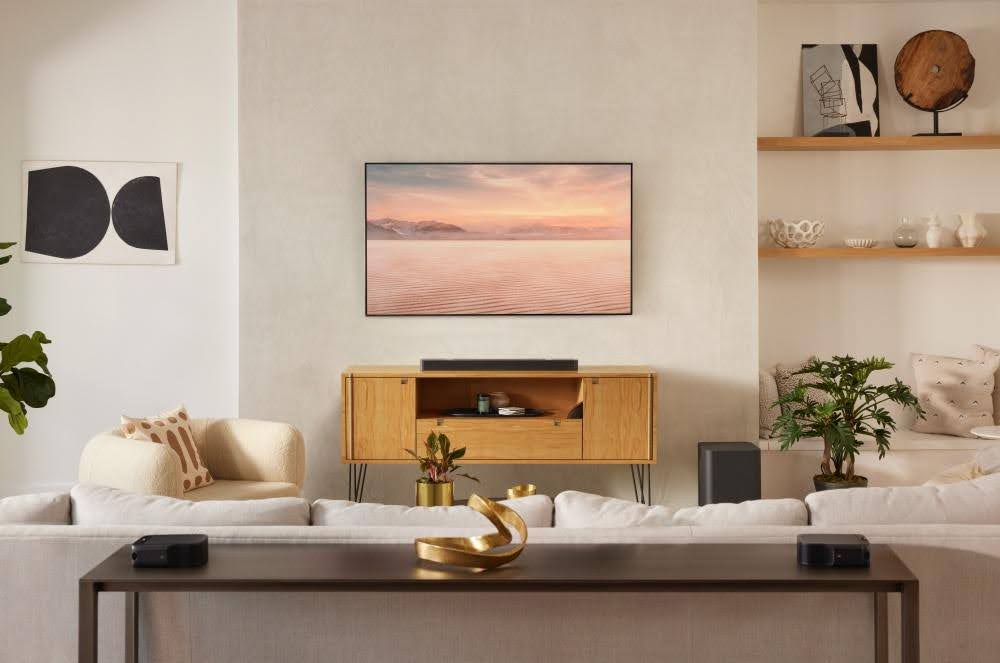 Lifestyle What is Dolby Atmos? An Audio Enthusiast's Guide
Lifestyle What is Dolby Atmos? An Audio Enthusiast's Guide
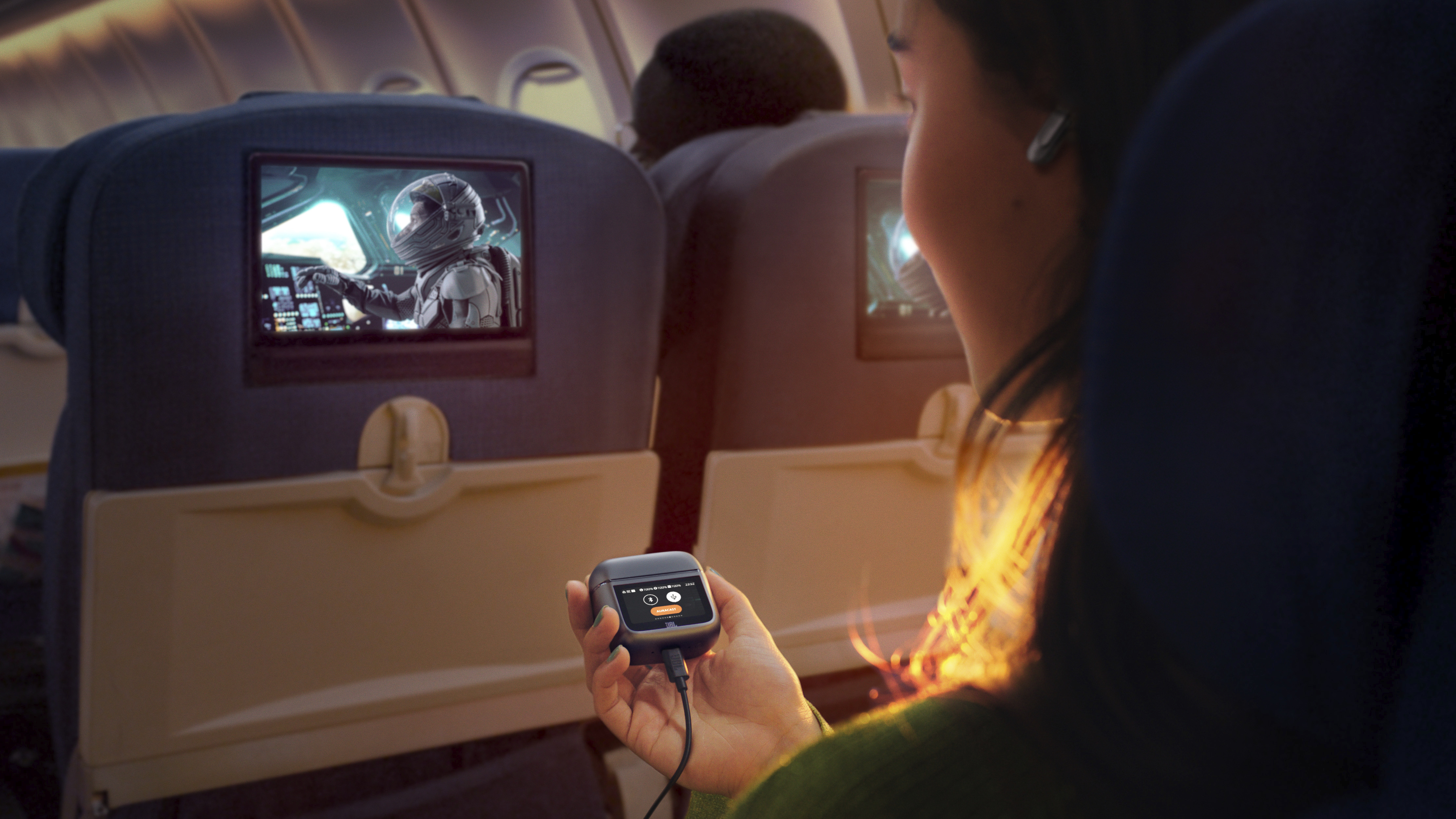 Lifestyle JBL Tour Pro 3: The Best Earbuds for Airplane Travel
Lifestyle JBL Tour Pro 3: The Best Earbuds for Airplane Travel
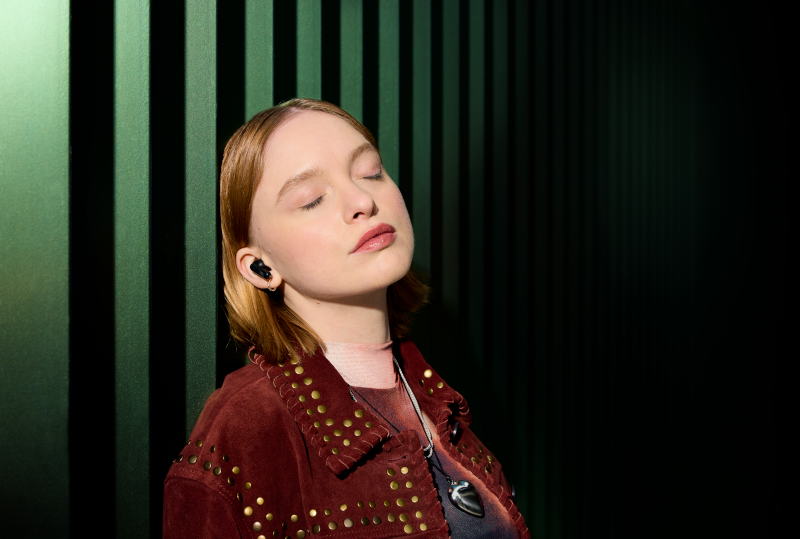 Lifestyle Best Noise Cancelling Earbuds in Australia (2025 Guide)
Lifestyle Best Noise Cancelling Earbuds in Australia (2025 Guide)
 Lifestyle Best JBL Headsets in Australia (2025 Guide)
Lifestyle Best JBL Headsets in Australia (2025 Guide)
 Lifestyle Soundbar vs Speaker: Which One’s Right for You?
Lifestyle Soundbar vs Speaker: Which One’s Right for You?
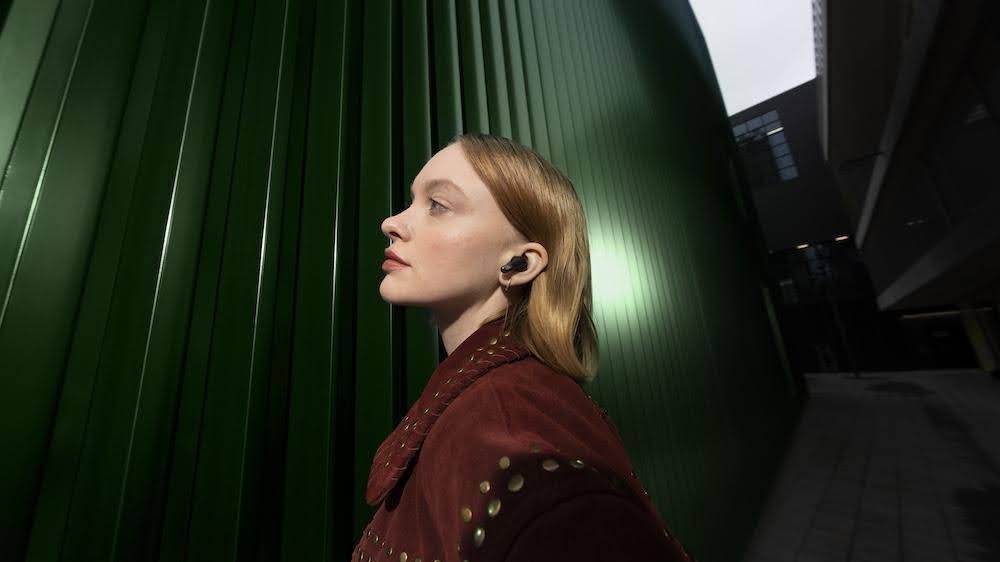 Lifestyle The Official JBL Guide to the Best Earphones and Earbuds of 2025
Lifestyle The Official JBL Guide to the Best Earphones and Earbuds of 2025
 Lifestyle What is Dolby Atmos? An Audio Enthusiast's Guide
Lifestyle What is Dolby Atmos? An Audio Enthusiast's Guide
 Lifestyle Best Noise-Cancelling Headphones in Australia (2025 Guide)
Lifestyle Best Noise-Cancelling Headphones in Australia (2025 Guide)
 Lifestyle Are Dolby Atmos Soundbars Worth It?
Lifestyle Are Dolby Atmos Soundbars Worth It?
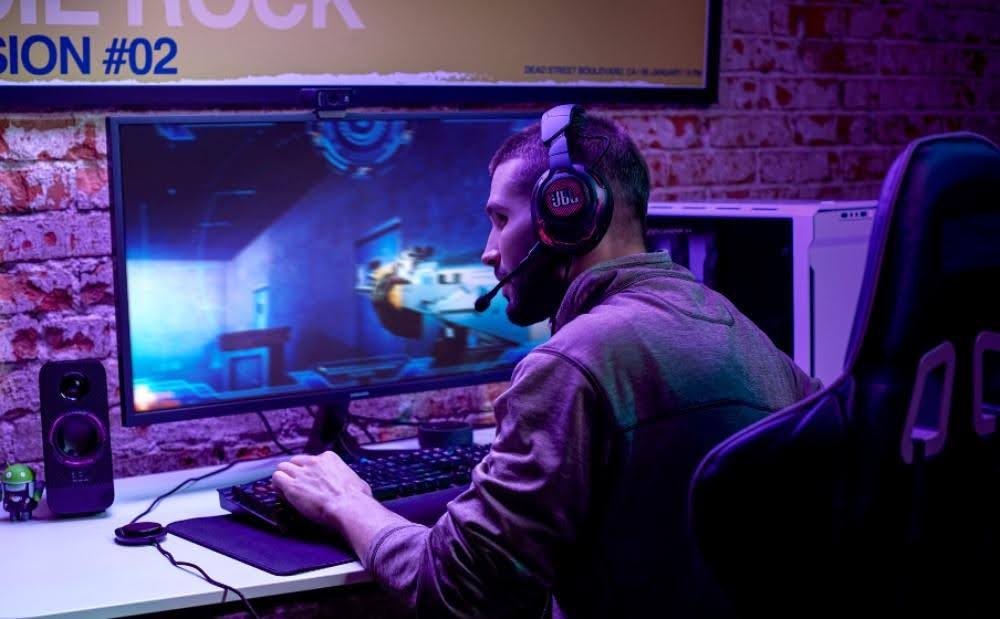 Lifestyle Are Soundbars Better Than Speakers for PCs?
Lifestyle Are Soundbars Better Than Speakers for PCs?
 Lifestyle The Official JBL Guide to the Best Wireless Headphones in Australia
Lifestyle The Official JBL Guide to the Best Wireless Headphones in Australia
 Lifestyle The 2025 Ultimate JBL Christmas Gift Guide For Anyone & Anything
Lifestyle The 2025 Ultimate JBL Christmas Gift Guide For Anyone & Anything
 Lifestyle 2025 Guide to the Best JBL Wireless Earphones
Lifestyle 2025 Guide to the Best JBL Wireless Earphones
 Lifestyle Missed gamescom 2025? See the New JBL Quantum 950, 650, 250 Gaming Headsets
Lifestyle Missed gamescom 2025? See the New JBL Quantum 950, 650, 250 Gaming Headsets
 Lifestyle What Are the Best Speakers for a House Party?
Lifestyle What Are the Best Speakers for a House Party?
 Lifestyle JBL Gift Ideas: Find the Perfect Audio Gift for Every Occasion
Lifestyle JBL Gift Ideas: Find the Perfect Audio Gift for Every Occasion
 Lifestyle How to Prepare for a Party with JBL: Gearing Up for Epic Celebrations
Lifestyle How to Prepare for a Party with JBL: Gearing Up for Epic Celebrations
 Lifestyle What Is the Best Mother's Day Gift? Unwrap These Top Picks
Lifestyle What Is the Best Mother's Day Gift? Unwrap These Top Picks
 Lifestyle What to Gift on Father's Day 2025: The Ultimate Audio Guide for Dads
Lifestyle What to Gift on Father's Day 2025: The Ultimate Audio Guide for Dads
 How To Guide JBL & Auracast™: Share the Vibe, Not the Earbuds
How To Guide JBL & Auracast™: Share the Vibe, Not the Earbuds
 Lifestyle Best AirPod Alternatives: Top JBL Earbuds for Every Listener
Lifestyle Best AirPod Alternatives: Top JBL Earbuds for Every Listener
 Help me choose Open-Ear, In-Ear, Over-Ear, On-Ear, and Open-Back: Which Headphones to Choose?
Help me choose Open-Ear, In-Ear, Over-Ear, On-Ear, and Open-Back: Which Headphones to Choose?
 Lifestyle PC Gaming Accessories: Find the Perfect Headset with JBL
Lifestyle PC Gaming Accessories: Find the Perfect Headset with JBL
 Lifestyle How to Become a DJ in Australia: Your Guide to Rocking the Decks
Lifestyle How to Become a DJ in Australia: Your Guide to Rocking the Decks
 How To Guide How To Clean Your Wireless Headphones And Earpads
How To Guide How To Clean Your Wireless Headphones And Earpads
 How To Guide Best Headphones for Studying and Work for Ultimate Concentration
How To Guide Best Headphones for Studying and Work for Ultimate Concentration
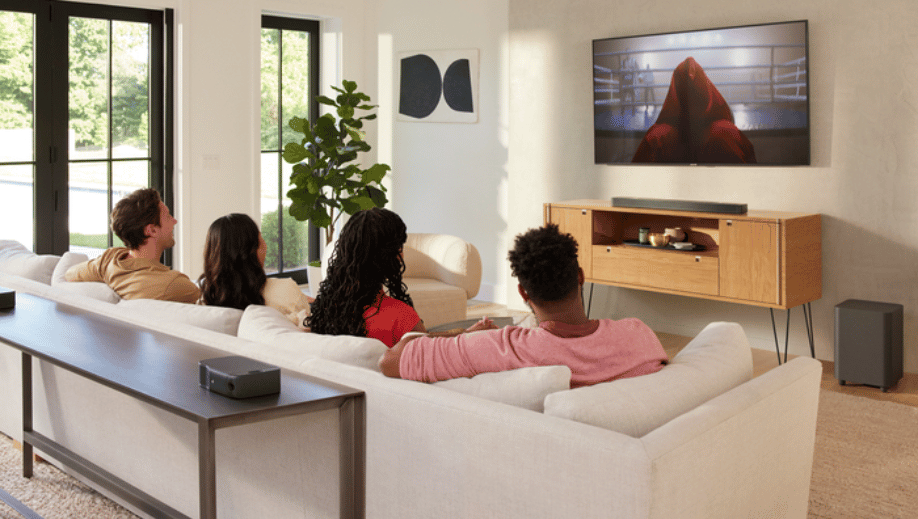 Lifestyle The Best Soundbar For Your TV & Home Audio
Lifestyle The Best Soundbar For Your TV & Home Audio
 Learn More Noise Cancellation or Noise Reduction: Find the Right Sound
Learn More Noise Cancellation or Noise Reduction: Find the Right Sound
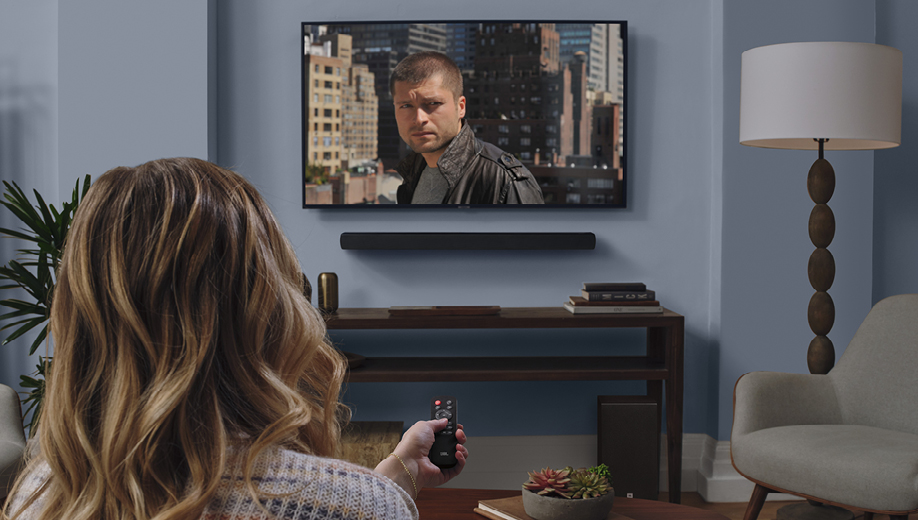 Lifestyle JBL Soundbar: How to Fix an HDMI ARC That’s Not Working
Lifestyle JBL Soundbar: How to Fix an HDMI ARC That’s Not Working
 Help me choose Choosing the best headphones for kids
Help me choose Choosing the best headphones for kids
 Lifestyle Tips on choosing the best gaming headset
Lifestyle Tips on choosing the best gaming headset
 Help me choose How do noise-cancelling headphones work?
Help me choose How do noise-cancelling headphones work?
 Lifestyle How To Choose The Best Headphones For Running
Lifestyle How To Choose The Best Headphones For Running
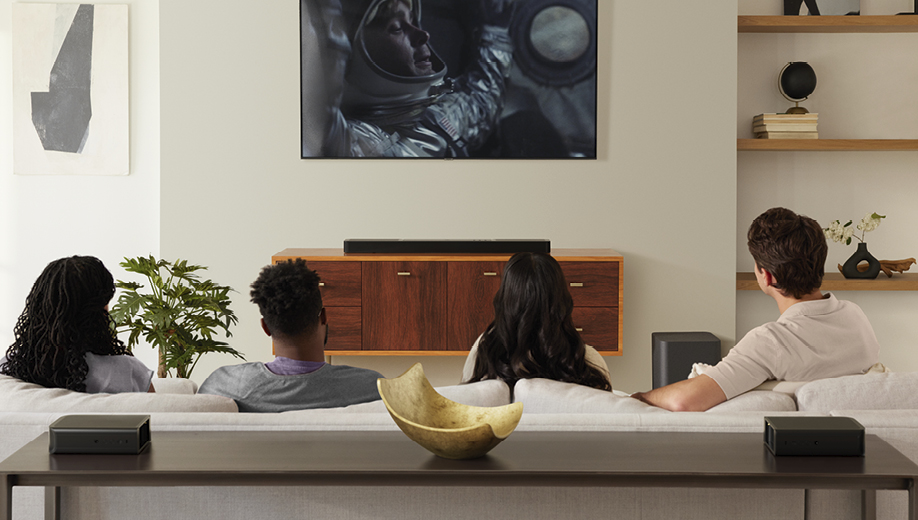 Lifestyle How To Connect JBL Soundbar To TV
Lifestyle How To Connect JBL Soundbar To TV
 Help me choose All about wireless headphones
Help me choose All about wireless headphones
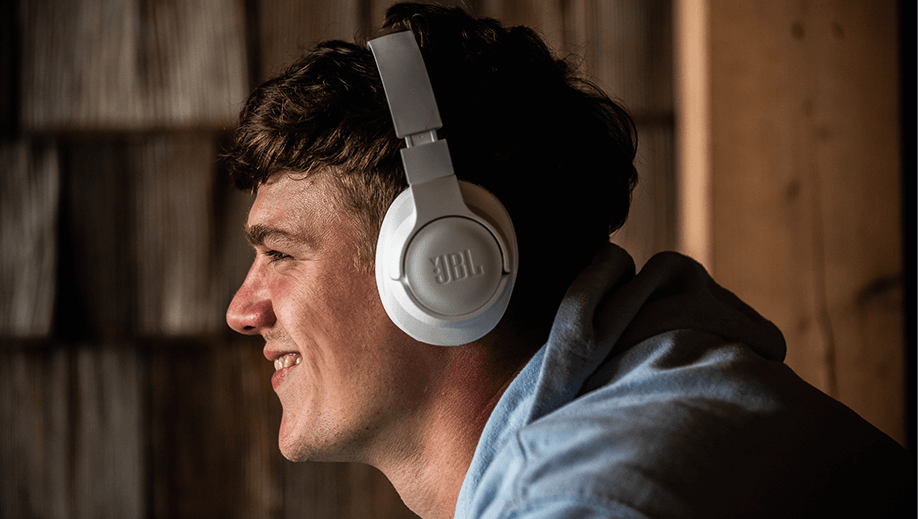 New Product Amidst a world cluttered with noise, what if you could create your own sound sanctuary?
New Product Amidst a world cluttered with noise, what if you could create your own sound sanctuary?
 Help me choose On-Ear vs Over-Ear Headphones: Specs, Performance, Use-Cases & More
Help me choose On-Ear vs Over-Ear Headphones: Specs, Performance, Use-Cases & More
 Lifestyle 5 tips to make the most
Lifestyle 5 tips to make the most of your time at home
 Help me choose Music in the shower? Go for Waterproof!
Help me choose Music in the shower? Go for Waterproof!
 Help me choose The best outdoor speaker
Help me choose The best outdoor speaker
 Lifestyle Top Christmas gift ideas for music & tech lovers
Lifestyle Top Christmas gift ideas for music & tech lovers
 Help me choose Headphones or earbuds?
Help me choose Headphones or earbuds?
 Help me choose Help me choose
Help me choose Help me choose
 Lifestyle All about DAB+ radio
Lifestyle All about DAB+ radio
 Help me choose Listening to music via Wifi or Bluetooth?
Help me choose Listening to music via Wifi or Bluetooth?
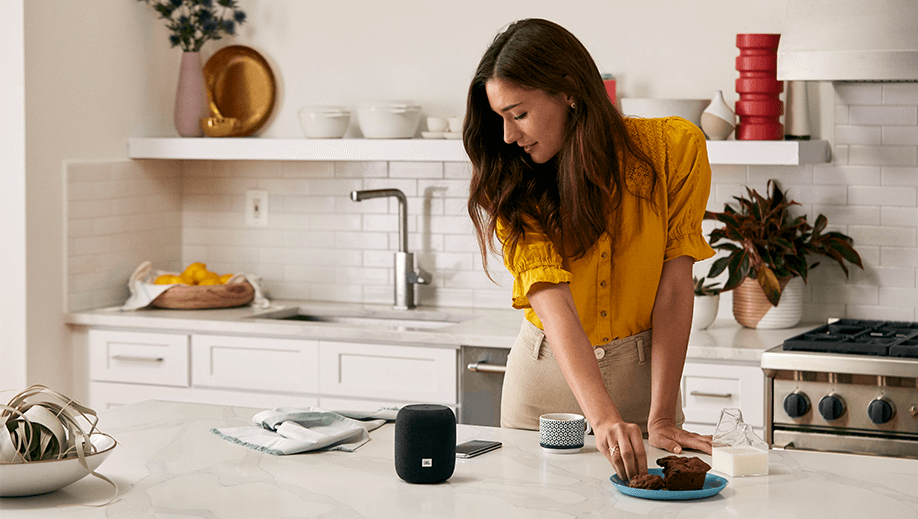 Help me choose Ways to use a smart speaker in your home
Help me choose Ways to use a smart speaker in your home
 Lifestyle The ultimate guide on how to clean earphones and headphones
Lifestyle The ultimate guide on how to clean earphones and headphones
